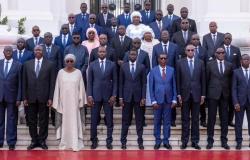The blockage crystallizes around a single institution: ONEE, which has long played a central role in the national electricity sector. However, it was supposed to gradually abandon this position with the opening of the market to other public and private players. The project is certainly colossal, since it involves restructuring one of the oldest institutions in the Kingdom, with thousands of employees, an unrivaled territorial network and skills accumulated over the years and experience. This is why tackling such a heavy issue can prove to be as technically perilous as it is politically costly.
But for the institution headed by Zineb El Adaoui, there is urgency. The report recommends “accelerating the reform process by separating production, transport and distribution activities, and finalizing the publication of legal texts relating to the regulation of the sector, in particular those concerning the creation and organization of a entity managing the electricity transmission network”.
This would mean ridding ONEE of its electricity production activities, by “transferring renewable energy assets to MASEN”, as the report notes, and of distribution activities, to concentrate only on electricity transmission. electricity. This project remains the cornerstone for any future development of a competitive, low-carbon and accessible energy sector.
Before getting there, there are crucial issues to resolve, such as the restructuring of the colossal debt that ONEE is dragging, and which must be addressed if we want to achieve our ambitions, recently recalled by His Majesty the King during of the last meeting dedicated to the development of renewable energies, on November 22, 2022.
Morocco






